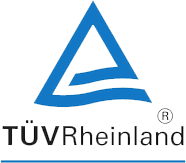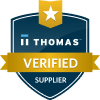“Identifying a standard motor that meets their application requirements can be challenging.”
For many design engineers, developing motion and control solutions for Medical, Industrial, and Military/Aerospace systems, identifying a standard motor that meets their application requirements can be challenging. Often times, a compromise is made on performance, price, and/or logistics because the engineer believed a custom solution would either be too expensive or time-consuming to develop. Therefore, a few factors should be considered when selecting a custom motor supplier.
However, a customized motor project may actually be cost-effective and the manufacturing lead time can be similar to that of a standard product.
The following factors will impact cost containment and development lead time:
1) Design Services
For a ground-up design, Engineering Services typically refers to motor simulation and performance verification.
However, Design for manufacture is equally critical due to its impact on the unit price; specifically, the relationship between raw material selection and associated processing costs, and implementing design reviews on the stator winding to accommodate various types of automation.
2) Tooling and Fixturing
A stator may require hundreds, if not thousands, of laminations even in the prototyping stage. A progressive die is typically utilized for the manufacturing process. The cost of these tools can start at a price of $50,000 and may exceed $200,000, depending upon the size and complexity of the tool design.
“A progressive die is typically utilized for the manufacturing process.”
If the design and/or manufacturing of the tool is outsourced, the additional mark-up required for profitability is significant.
3) Manufacturing
Although consumer-based applications for motors exceed millions in annual volumes, those volumes for many other market sectors are significantly fewer.
“Experience in hand-wound coils is very important due to its impact on performance and prototype lead times.”
As a result, a supplier must have various types of manufacturing capabilities to support the manufacturing of the stator, rotor, and enclosure from prototyping through production. The equipment can typically include laser cutting, wire EDM, and screw machines.
Additionally, extensive experience in hand-wound coils is very important due to its impact on performance and prototype lead times. Automation equipment is necessary for higher volume projects to provide an active solution to decreasing the overall cost of the product.
At Composite Motors, our capabilities include product development to product manufacture. Our Engineering Services include motor simulation, design verification, and design for manufacturing.
“Automation equipment is necessary for higher volume projects to provide an active solution to decreasing the overall cost of the product.”
As for manufacturing, our business model focuses on In-House Vertical Integration, and outsourcing rarely occurs. Composite Motors reflects this with our processing equipment for stators, rotors, and motor assemblies; including, post-processing equipment for coatings.
When the factors above are used when selecting a custom motor supplier, a custom motor can be a cost-effective solution, with comparable lead times to standard motor suppliers.


